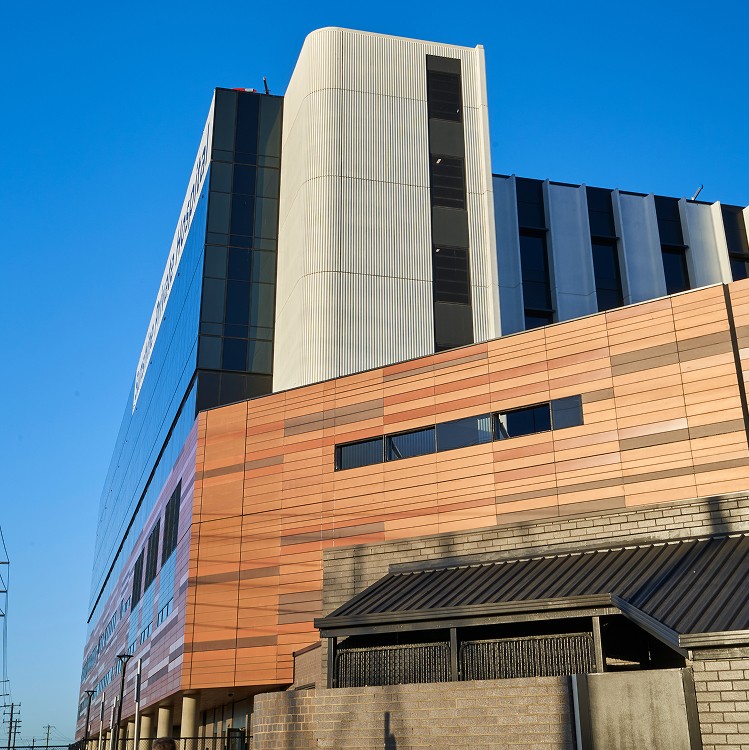
Addictive Disorders Program
Addiction can affect anyone. Whether it involves alcohol, prescription medication, illicit drugs, or certain behaviours, substance use can quickly take over daily life, impacting health, relationships, and emotional wellbeing. When addiction occurs alongside a mental health condition – a situation known as co-occurring disorders – recovery can feel even more overwhelming.
At Sunshine Clinic Private Hospital, our Addictive Disorders Program is designed to support individuals living with mild-to-moderate substance use alongside mental health concerns such as depression, anxiety, trauma, or personality disorders. Delivered through our outpatient day programs, the program combines evidence-based therapies with compassionate, person-centred care to help patients take meaningful steps toward recovery.
Overview of the Addictive Disorders Program
Our program is structured around the principle that recovery is not just about stopping use, but about building a healthier, more fulfilling life. Patients are supported to:
1
Understand the relationship between substance use and mental health.
2
Learn coping strategies to manage cravings and prevent relapse.
3
Address the underlying emotional pain or stress that contributes to substance use.
4
Rebuild confidence, self-esteem, and relationships.
5
Develop practical, values-driven goals for the future.
Therapies are delivered in both group and individual formats, ensuring patients benefit from peer support as well as tailored one-on-one care. Our multidisciplinary team of psychiatrists, psychologists, social workers and occupational therapists work together to provide holistic treatment that supports mind, body, and emotional wellbeing.
Conditions Supported by the Program
Alcohol Misuse
Prescription Medication Misuse
Such as benzodiazepines or opioid pain medications, where dependency may have developed gradually.
Illicit Drug Use
Co-Occurring Disorders
Evidence for Treatment of Addictive Disorders
Research consistently shows that integrated treatment – where both substance use and mental health are addressed together – is the most effective approach for long-term recovery.
Cognitive Behaviour Therapy (CBT)
Acceptance & Commitment Therapy (ACT)
ACT helps patients build resilience by learning to accept cravings and discomfort without acting on them, while focusing on values-driven change.
Dialectical Behavioural Therapy (DBT)
Mindfulness-Based Approaches
Group Therapy
In Australia, Creative Arts Therapy is recognised as an allied health profession, with practitioners accredited through the Australian, New Zealand and Asian Creative Arts Therapies Association (ANZACATA). It is increasingly included in private and public hospital programs as a complement to traditional therapies.
How the Addictive Disorders Program is Delivered at Sunshine Clinic
Our outpatient program is structured, flexible, and recovery-oriented. Patients may engage in:
- Group sessions – focusing on education, skill development, and peer support.
- Individual therapy – one-on-one sessions to explore personal challenges and develop tailored coping strategies.
- Psychoeducation – providing knowledge about addiction, relapse prevention, and the impact of substances on mental health.
- Mindfulness and creative therapies – including art, music, and movement, offering alternative pathways for expression and stress reduction.
- Relapse prevention planning – equipping patients with practical tools to manage high-risk situations.
- Family engagement – where appropriate, families are included in therapy to strengthen support networks.
Our clinicians work collaboratively with each patient to create an individualised care plan. This ensures that therapy is not only evidence-based, but also aligned with the patient’s personal values, goals, and circumstances.
Why the Addictive Disorders Program is Valuable for Recovery
Many people living with addiction feel trapped by cycles of craving, use, and regret. The Addictive Disorders Program at Sunshine Clinic provides a pathway out of that cycle. Patients often report:
- Reduced cravings and improved coping skills.
- Greater understanding of the link between mental health and substance use.
- Stronger relationships with peers, family, and support networks.
- Improved emotional regulation and resilience.
- Renewed hope and motivation for the future.
At Sunshine Clinic Private Hospital, we believe recovery is possible for everyone. Our program is not about judgement or punishment – it is about support, learning, and empowerment. By combining evidence-based therapies with compassionate care, we help patients build the skills and confidence they need to live a healthier, more stable life.
Comprehensive Private Mental Health Care in Melbourne’s West
Sunshine Clinic offers psychiatry consulting services, as well as inpatient and outpatient programs tailored to support recovery, resilience, and long-term wellbeing.